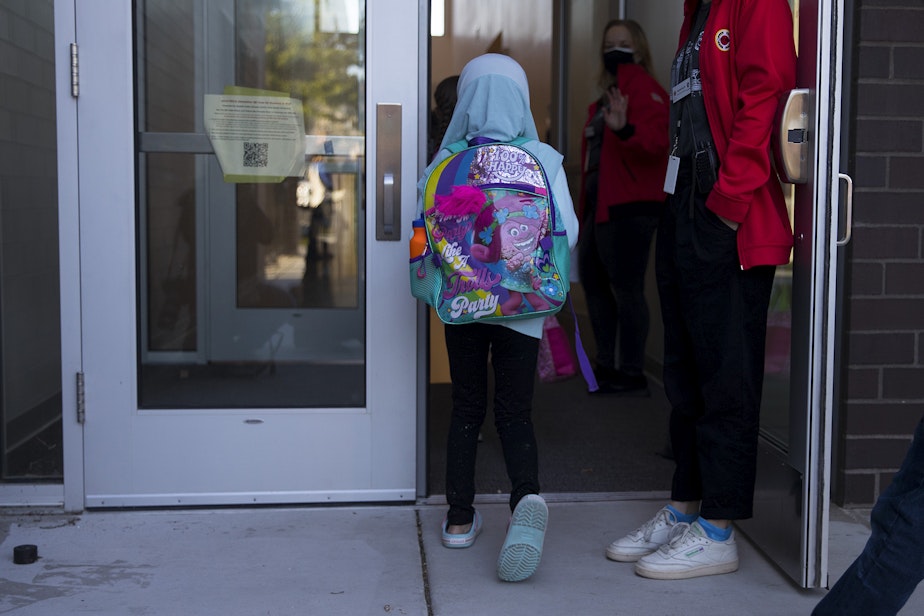Seattle schools approves budget plan, but hard choices remain ahead

The Seattle School Board has given its blessing to district officials' plan to address a $131 million budget shortfall next year.
Seattle Public Schools officials celebrated having a solution in place for next year. But they were also quick to caution that Washington's largest school district isn't out of the weeds yet.
Many of the new funds and other shifts in next year's budget are not permanent solutions, district officials warned. Federal Covid relief funding for schools expires next year, and the district is not likely to receive another boost in state funding. (The district received an extra $20 million this year, helping cover the budget gap.)
District officials have already said they plan to cut another $18 million from the central office and $5 million from schools. But they'll also have to look at different kinds of cuts — namely school consolidations.
It's a move the nearby Bellevue School District already made to help tackle a projected $20 million revenue decline there next year. Seattle school officials have opted to push that harsh reality off for one year, saying they plan to do community engagement beforehand.
Sponsored
In all, Seattle administrators anticipate closing schools and shifting students around will save the district about $28 million. They plan to start community engagement next month and present plans to the school board in October.
This summer, the district also plans to complete a fiscal analysis of all programs where expenditures and revenues remain "significantly misaligned." In special education, for example, officials anticipate spending $125 million more than they get in revenue from the state.
State funding and budget cuts aside, districts can also consider asking voters for more cash through a bond. But here in Washington, passing a bond is quite a difficult task. A school district must get a minimum of 60% of the vote.
In the Kent School District, district officials recently announced voters resoundingly defeated a $495 million bond to upgrade schools.
The bond aside, earlier this spring, the district warned parents that its finances will be at risk over the next several years, when Covid funding runs out.






